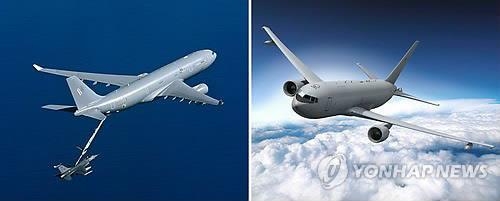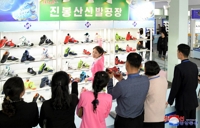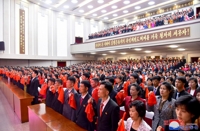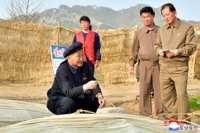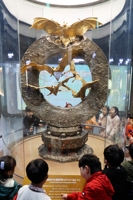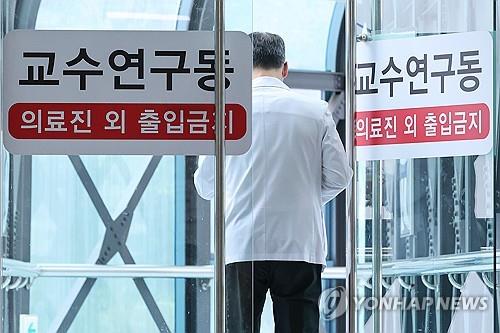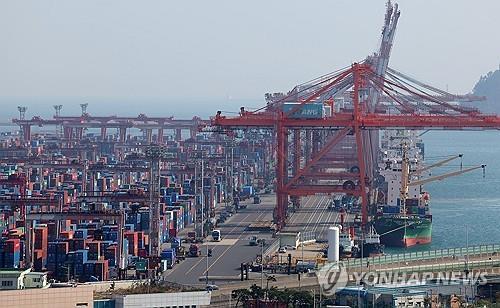(News Focus) 3 global plane giants compete for S. Korea's refueling tanker project
By Oh Seok-min and Joint Press Corps
MADRID/SEATTLE, Nov. 23 (Yonhap) -- Three global defense giants are in last-minute negotiations with South Korea to sell four aerial refueling tankers worth 1.4 trillion won (US$1.26 billion) amid the prospect of a delay in the final bidder selection until early next year, defense and industry officials said Sunday.
As part of its long-term force improvement program, South Korea has been pushing to put four aerial refueling tankers into service between 2017 and 2019. Vying for the project are Europe's Airbus, Boeing of the United States and Israel Aerospace Industries (IAI).
Airbus Defense and Space, citing what it calls the "proven efficiency" of its A330-based Multi-Role Tanker Transport (MRTT) tanker, says its product can meet both air-to-air refueling and air transport demands required by the South Korean Air Force.
"Without additional fuel tanks, the Airbus tanker inherits 111 tones of fuel capacity, which outmatches our competitors," Irena Barrio Martin, the South Korean market development manager, told reporters on a recent trip to an Airbus plant in Getafe, just south of Madrid, Spain.
"Airbus tanker also can fulfill its fueling role while transporting up to 266 passengers and 37 tons of freight, which means that it can undertake aero-medical evacuation or VIP transport duties with minimal reconfiguration," she said, noting that her company has "won all deals so far outside the U.S."
One of the key advantages is that the MRTT has already been fully developed, and six nations, including Britain, Australia and Singapore, have decided to adopt the platform, according to an Airbus official in Seoul. He asked not to be named.
"Different from our competitors, Airbus tankers have already been in service, which means South Korea does not have to run technical risks and can have them delivered early," the official said.
"A tanker with large fuel capacity would also be fit for South Korea, said an Airbus official in Seoul, as the nation plans to buy 'just' four tankers due to defense budget constraints," he added.
Boeing, meanwhile, stresses that its KC-46 tanker features high combat readiness, as it is armed with survivability characteristics such as chemical and biological capabilities, and provides South Korea with interoperability with the U.S. Air Force.
About 28,500 U.S. troops are currently stationed in South Korea, a legacy of the 1950-53 Korean War, and interoperability with them has always been a key factor whenever South Korea buys foreign arms.
Under a deal already signed with Boeing, the U.S. Air Force will take delivery of 18 KC-46 tankers by 2017, the first year when the tanker will be put into service. A total of 179 tankers are set to be delivered to the U.S. Air Force by 2027, according to Boeing.
"The commonality and interoperability in the air will allow for the same thing on the ground to share the support equipment and parts, spares and training facilities," Tim Norgart, the vice president of Business Development for Boeing Military, told reporters visiting Seattle.
In terms of size, Norgart said its KC-46 tanker is "ideally suited" for the refueling mission, noting it can load 96.1 tons of fuel with an additional ability to transport 114 people.
"The tankers by my competitors may be a bit cheaper in the acquisition, but it would cost you more in the long run ... The bigger the airplane, the greater the infrastructure and operations costs associated with," he said.
As a renovated version of the B767-300ER plane, the IAI's Multi-Mission Tanker Transport (MMTT) is feted for its cost effectiveness.
"You can enjoy the stable, high-tech products at a lowest price. We are also ready to transfer high technology to South Korea in maintenance, repair and operating as well as engineering knowhow," an IAI official said.
Though South Korea's Defense Acquisition Program Administration (DAPA) has said it aims to select the successful bidder by the end of November, officials and industrial sources say it would likely be delayed until early next year due to wide gaps in terms of offsets in this trade.
"We've yet to split the gap in terms of offsets with the candidates, though they've almost adjusted the prices," a DAPA official said on the condition of anonymity.
Offsets in defense trade encompass a range of industrial compensation arrangements required by foreign governments as a condition of the purchase of defense products and services from a non-domestic source.
"Finalizing the deal itself within the targeted deadline is not of primary importance. We are trying to get the best result so as to maximize national interests," he said, while vowing efforts to acquire and deploy them by the year 2019 as scheduled.
Adding to South Korean concerns for a further delay in the project, however, the U.S. military newspaper, the Air Force Times, reported that Boeing "is being challenged by integration of its KC-46A tanker."
"Boeing has struggled, from my past experience, on probably the most challenging part of any program, which is the integration and test piece ... They had the issue with the wiring and that has proven to be more challenging for them to overcome than I think they originally anticipated," Lt. Gen. Ellen Pawlikowski, the deputy officer in charge of arms acquisition for the U.S. Air Force, was quoted by the report as saying.
graceoh@yna.co.kr
(END)
-
 S. Korea marks 30th anniv. of Korean Pavilion at Venice Biennale with contemporary art
S. Korea marks 30th anniv. of Korean Pavilion at Venice Biennale with contemporary art -
 Artist Lee Bae captures ethereal Korean aesthetics at Venice Biennale
Artist Lee Bae captures ethereal Korean aesthetics at Venice Biennale -
 Ateez member Yunho throws first pitch at MLB match between Dodgers, Mets
Ateez member Yunho throws first pitch at MLB match between Dodgers, Mets -
 Gov't likely to accept university chiefs' request to lower med school enrollment quota
Gov't likely to accept university chiefs' request to lower med school enrollment quota -
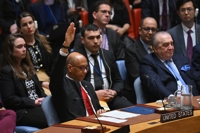 S. Korea supports resolution backing U.N. membership of Palestine
S. Korea supports resolution backing U.N. membership of Palestine
-
 Artist Lee Bae captures ethereal Korean aesthetics at Venice Biennale
Artist Lee Bae captures ethereal Korean aesthetics at Venice Biennale -
 S. Korea marks 30th anniv. of Korean Pavilion at Venice Biennale with contemporary art
S. Korea marks 30th anniv. of Korean Pavilion at Venice Biennale with contemporary art -
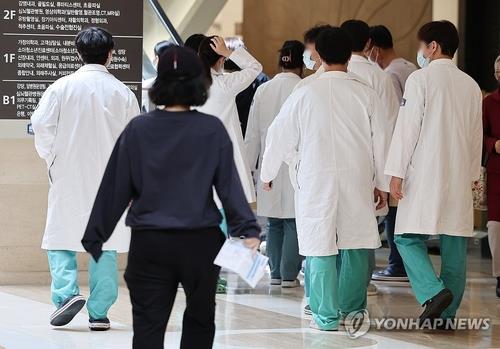 Gov't likely to accept university chiefs' request to lower med school enrollment quota
Gov't likely to accept university chiefs' request to lower med school enrollment quota -
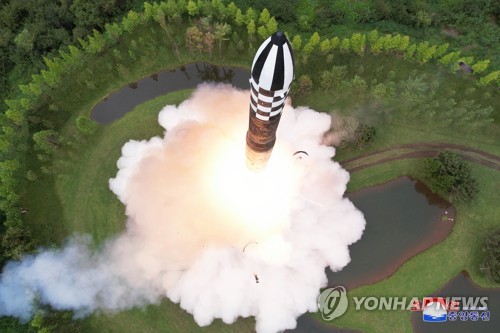 Experts see possibility of N.K. conducting nuclear test before U.S. presidential vote
Experts see possibility of N.K. conducting nuclear test before U.S. presidential vote -
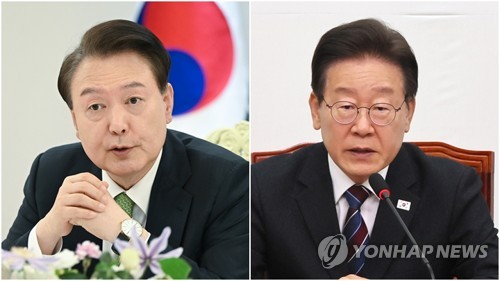 Details of meeting between Yoon, opposition leader undecided: presidential office
Details of meeting between Yoon, opposition leader undecided: presidential office
-
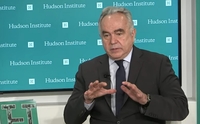 U.S. will take steps for three-way engagement on nuclear deterrence with S. Korea, Japan: Campbell
U.S. will take steps for three-way engagement on nuclear deterrence with S. Korea, Japan: Campbell -
 (LEAD) Hybe to file complaint against sublabel executives over internal conflict
(LEAD) Hybe to file complaint against sublabel executives over internal conflict -
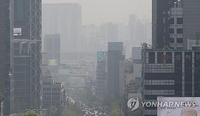 S. Korea reports highest suicide rate, ultra fine dust level among OECD nations: data
S. Korea reports highest suicide rate, ultra fine dust level among OECD nations: data -
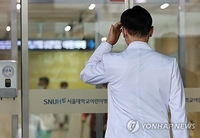 Looming weekly closure of major hospitals feared to worsen medical service crisis
Looming weekly closure of major hospitals feared to worsen medical service crisis -
 U.S. sent ATACMS missiles to Ukraine following Russia's use of N.K. missiles: White House
U.S. sent ATACMS missiles to Ukraine following Russia's use of N.K. missiles: White House
